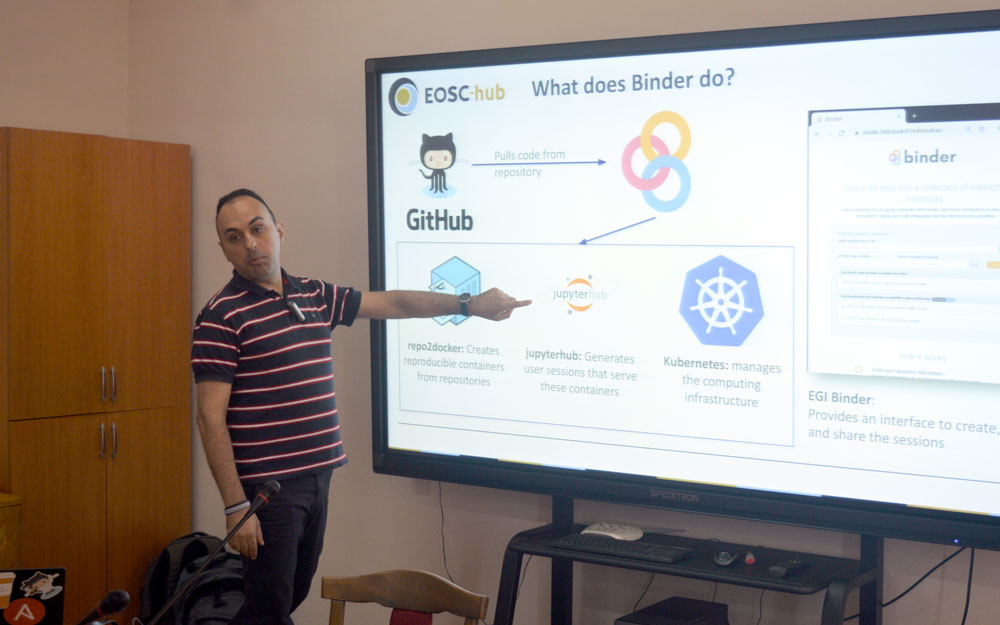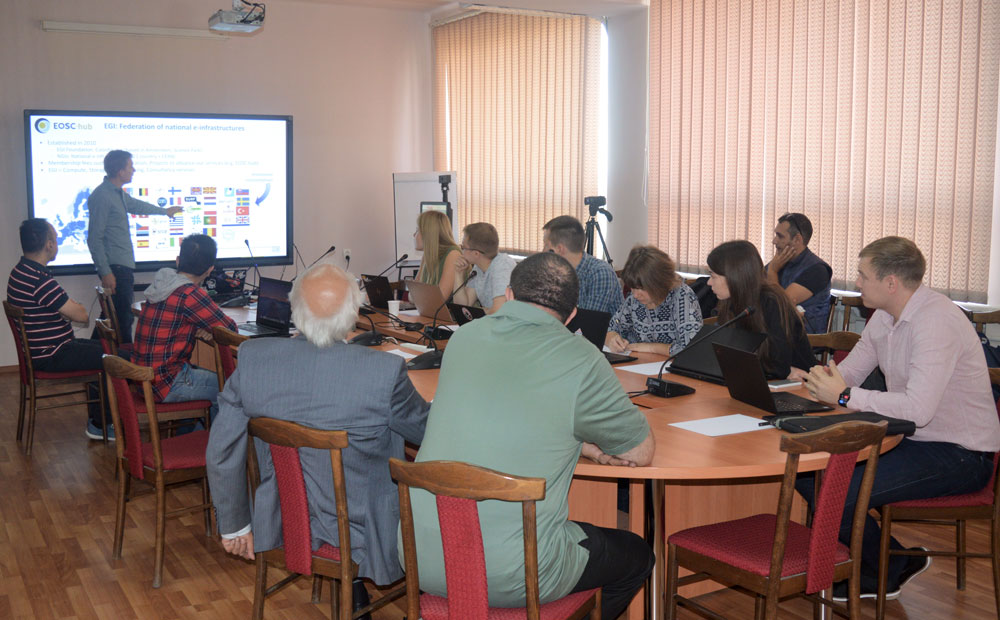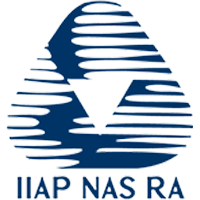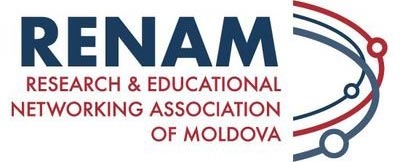Organisations that support research and education in Eastern Partnership countries are better prepared to enable open science, after training organised by the EU-funded EaPConnect project and its Armenian partner ASNET-AM. Experts from EGI delivered a tutorial to 13 researchers, programmers and IT-service providers from four countries, focusing on services that can be used later through the European Open Science Cloud (EOSC).
EOSC, which was launched with the support of the European Commission, is envisioned as a large infrastructure to support and develop open science and open innovation in Europe and beyond. Seamless services for storage, management, and analysis of research data will be available for researchers bridging borders and scientific disciplines.
Gergely Sipos of EGI, who coordinates engagement, support and service provisioning for Research Infrastructures in the EOSC-hub project, and Giuseppe La Rocca, who is a User Community Support Team member at EGI introduced EGI Notebooks – a Web environment based on Jupyter open-source software and the EGI cloud service, which allows development and execution of data analysis and visualisation – along with Binder, Github and Zenodo. The trainers shared knowledge and gave hands-on experience of the system.
Jupyter Notebook is a free interactive shell for various programming languages, allowing you to combine code, images, text, formulas and graphs in one complete document, and distribute it for other users. This is a very convenient tool for conducting experiments (both pure mathematical, and related to data processing) and creating beautifully formalised analytical reports and scientific articles.”
The training described all the stages of using and combining services for implementing Open Science, and this was very informative. The event did not require knowledge of any programming languages. EGI Notebooks is very useful for researchers who do not have knowledge in programming languages. The web environment is very flexible and convenient.”
It was interesting to learn how to use Jupyter technology, which allows you to include programming code with directly attached explanatory text. It’s really useful for researchers who can include both connections to data and descriptive text regarding data interpretation. It was was also important to see step-by-step how to work with Binder, Github and Zenodo, dealing with Open Science publications and scientific data. The practical exercises in a research context were very instructive indeed.”
The training was hosted by the EaPConnect partner national research and education network in Armenia, ASNET-AM. ASNET-AM has already joined the EOSC initiative and fosters its promotion, as it strives for data-driven science and puts all effort into making improvements for the research, education and academic communities in the country and beyond. The training event followed the 4th Eastern Partnership E-Infrastructure Conference, EaPEC 2019, in Yerevan, Armenia, on 27 September 2o19.





